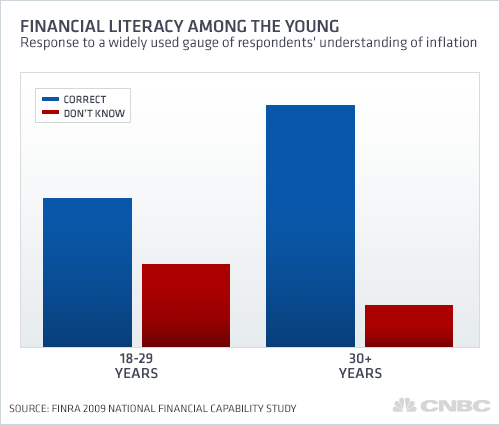Ready to play the "Great Piggy Bank Adventure?" How about a round of "Mindblown Life?"
These are just a couple of titles of the increasingly visible electronic games and apps promising to help children and young adults become financially literate. T. Rowe Price, the purveyor of the "Great Piggy Bank Adventure," is planning to introduce an app related to its game in May.
What is less visible is any serious measure of whether these activities do the job—whether they do, in fact, help young people learn to make smart financial choices. And with teenagers and young adults having to contend with the rising cost of college and the growing complexity of financial markets, this is more than a minor issue. Are financial literacy games a useful tool, or just another way for parents to spend money?
"This is the million-dollar question," said Annamaria Lusardi, a professor of economics and accountancy at George Washington University's business school and an expert on financial literacy. "People are spending a lot of money on these applications and programs, and they are not doing evaluations of them. I cannot tell you out of all these programs what works and what doesn't."
The final report of the President's Advisory Council on Financial Capability has also bemoaned the lack of information about financial literacy teaching tools. "The number of financial education resources to choose from is overwhelmingly large, " the council said in its final report to President Barack Obama. "At the same time, quality and efficacy indicators are sorely lacking and there is no clear relationship between the quality of a program and its availability."
Overall, though, there are indications that the games and apps may be having little effect. A major study of financial capability, published in 2009 by the Financial Industry Regulatory Authority found that young adults were twice as likely as those over age 30 to incorrectly answer a simple question about the impact of inflation. And Lusardi told a congressional panel on April 24 that an update of the study, not yet published, "shows no improvement in the level of financial knowledge between 2009 and 2012."
(Take a look at FINRA's financial quiz here.)


.530x298.jpg?v=1367247250)

